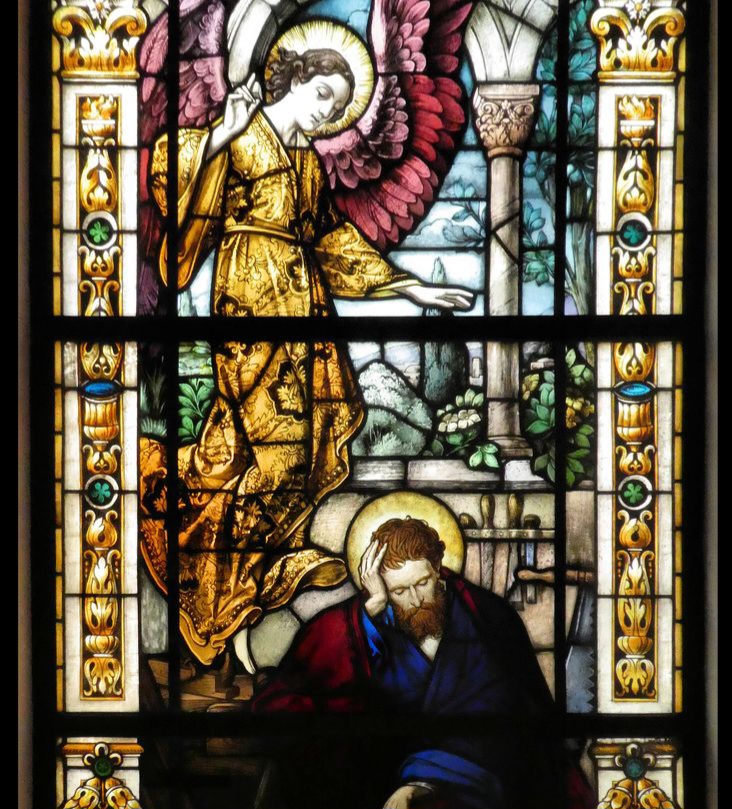This is the second week where we consider the lessons we might learn about leadership from our contemplation of the Ascension. Last week, we reflected on the way that Jesus developed a succession plan by selecting his “high potential” followers, coached their development, made space for them, and endowed them with his spiritual legacy. This week, we reflect on what particular meaning the celebration of the Lord’s Ascension might have for us as we consider the synodal path of the Church. In particular, what instructive example might we take from the way the Risen Jesus makes space for the apostles to fully realize their calling, not only as followers, but also as missionary disciples?

Even though he is the Son of God, somehow, I can’t imagine that it was easy for the Risen Jesus to leave the apostles to take up his mission, at least not without him being close at hand. In fact, I can imagine he might have felt what parents experience when they finally remove the training wheels from their child’s bicycle.
Parents must discern when their child is ready to make the transition, swallow their fear, give them a push from behind to give them enough momentum to balance themselves, and then let them go. It is a moment of truth, a moment of fear, anticipation and excitement. It is also a moment of self-restraint from holding on too long or pushing too hard. It is a moment of faith. And as we know, it is not only a one-time experience, but one that is repeated many times through the lives of parents and children, even as the roles are reversed, and children must eventually assume the role of responsibility for their parents.
For the Risen Christ, there was the fragility of the “project,” the mission of the proclamation and advancement of the Kingdom itself. Again, of course I’m projecting what it must have felt like for Jesus to entrust this fledgling movement of ultimate importance to him to this “uneven” assortment of friends and followers.
They each had their own personalities, styles, quirks and eccentricities. They made mistakes, often, and seemed rather slow in grasping his teaching about such fundamental things as how they should exercise authority as the humble servants of the others, or how they should welcome strangers and people of different beliefs and cultures than themselves. Honestly, wasn’t the plan to entrust the mission to this crew a little risky, maybe even irresponsible?
But Jesus accepted their imperfections and their failings. Jesus didn’t expect that they would do things exactly the way he did them, but trusted that they would each find their own way to accomplish the same goal. Peter would do things his way. James and John would each take up their roles in their particular manners. And Mary Magdalene would express his message in her way. The key was for them to all remain faithful to the core of his Way, true to his Word, his heart for the poor, his merciful love, his way of inviting people to receive the fullness of his joy and peace through metanoia and their reform of life.
Jesus didn’t ask his disciples to conform to a prescribed set of elaborate rules, but rather to remain true to his way of loving and leading, his spiritual legacy of service, healing, teaching, reconciliation. He knew that his example would not be easy to follow, but also that he could not do it for his friends. They had to find their own way, together, and without him taking up so much space that they couldn’t also take up their roles. They had demonstrated their faith in him. Now, he had to place faith in them.
Why is this relevant to those of us trying to serve the synodal unfolding of the Catholic Church? I can speak for myself that at times, I struggle to let go of my attachment to my way of doing things, to my knowledge, expertise and years of education, to my role and position of authority. I sometimes experience the temptation of thinking that by delegating responsibility, I am giving up responsibility myself. I know cardinals, bishops, and priests who sometimes feel the same.
Yet, by making space, as the Risen Jesus does, he does not give up responsibility, he takes on a wider scope of responsibility for the empowerment and the healthy development of his followers into leaders for his mission. He does not give authority up, but in fact, by authorizing others, he expands his authority and enhances the possibility for his mission to be extended further and further into the world.
And of course, for the disciples, there was a period of transition as the Risen Jesus ascended and their relationship with him is interiorized within and amongst them. With him no longer there to turn to in the same way, they must look to themselves and one another to meet the needs of people, for healing, for accompaniment, for instruction about how to move more deeply into relationship with God. They had to take another step in trust and faith- in themselves, in one another, and in the promise of the Holy Spirit to accompany them.
As we take stock of these lessons, these invitations to deeper trust and faith in ourselves, one another, and God, how might we actually be taking a step forward in maturity as leaders by making space for others? What resistance do we experience to letting go of control, to delegating responsibility to others, and what grace might we require in order to get out of our own way in order to make space for others? As we celebrate the feast of the Ascension, and prepare for Pentecost, we continue to join together in prayer for Pope Leo, for our Church, and for the maturity of leadership in every sector.
With you on the road,




